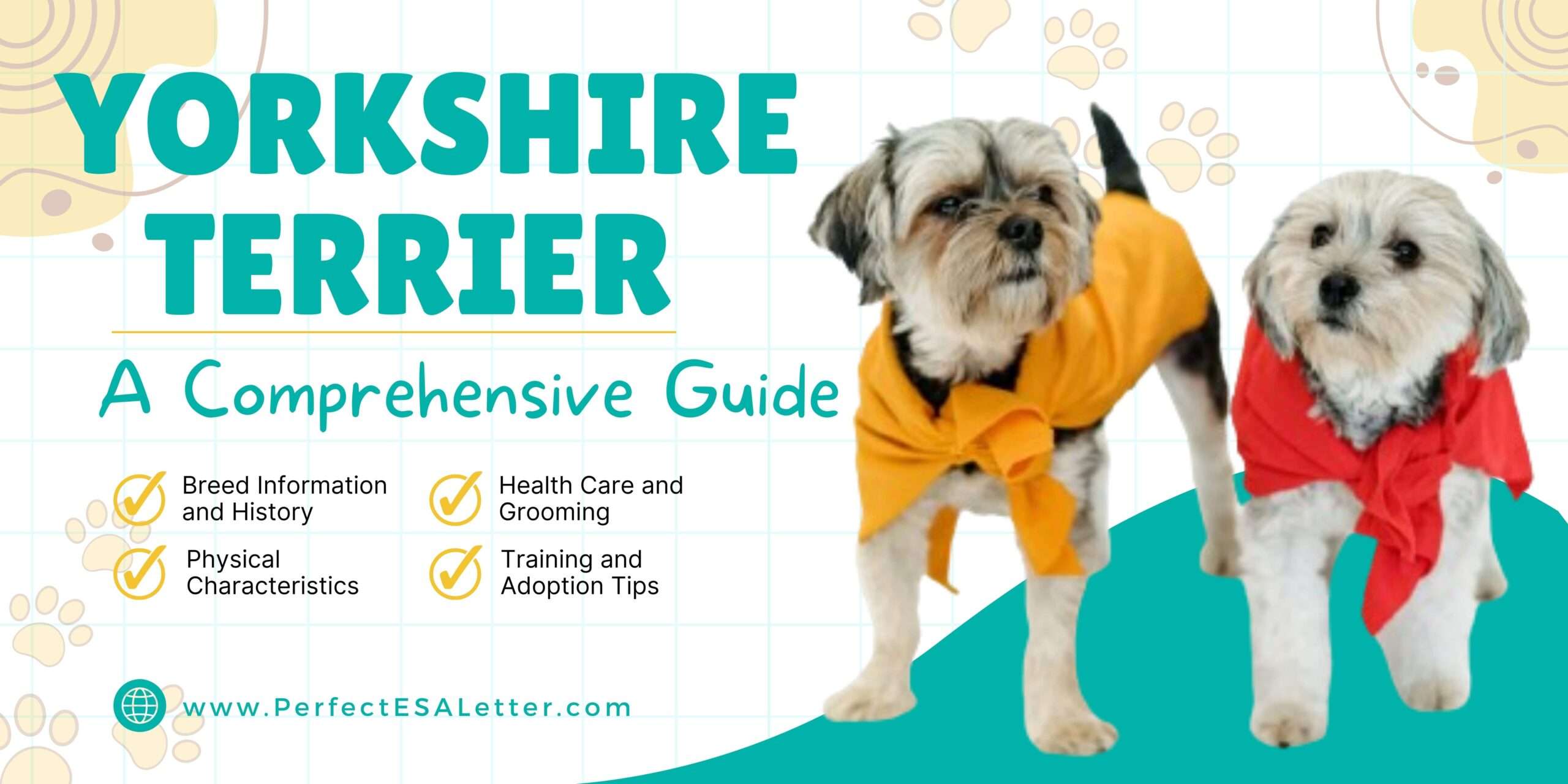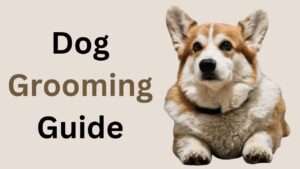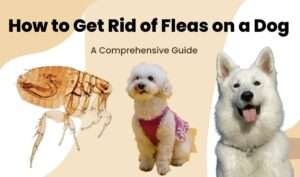Yorkshire Terrier | A Comprehensive Guide
Yorkshire Terrier | A Comprehensive Guide
Ever dreamed of having a pint-sized dynamo of charm and elegance as your loyal companion?
Enter the enchanting world of Yorkshire Terriers – those tiny yet mighty bundles of fur that captivate hearts effortlessly!
Imagine that a dainty furball with a spirit as vast as the Yorkshire moors, ready to bring joy and boundless affection into your life!
What if your world was sprinkled with the delightful energy of this diminutive yet dazzling breed?
Join us as we unravel the magic woven by Yorkshire Terriers, proving that big things do come in small, furry packages!
Are you ready to step into a world where every bark echoes with tales of spirited adventure and companionship?
Let’s explore together!
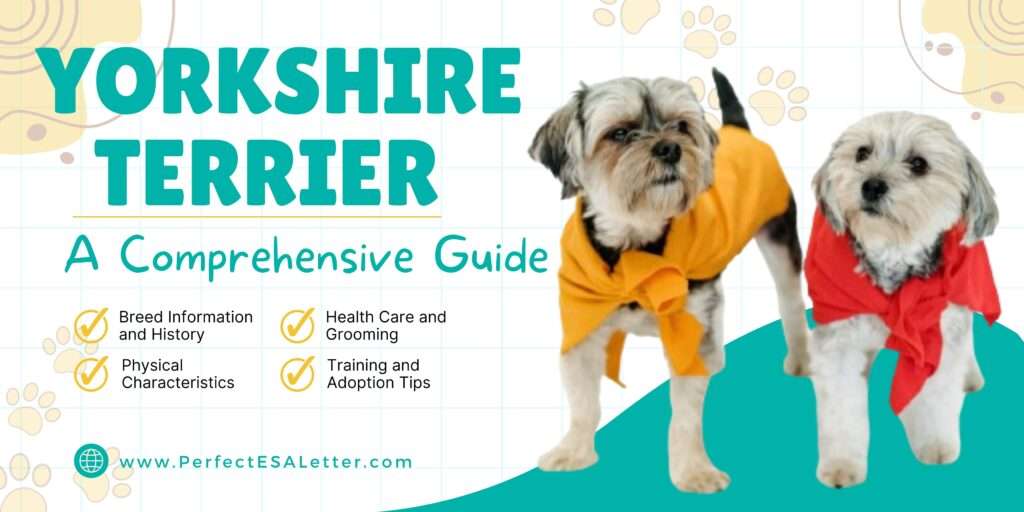
Yorkshire Terrier
| Characteristic | Description |
|---|---|
| Size | Small, typically 7 to 8 inches at the shoulder |
| Weight | 4 to 7 pounds |
| Lifespan | 12 to 15 years |
| Temperament | Spirited, Affectionate, Intelligent |
| Activity Level | Moderate to High |
| Coat Type | Long, Silky, Straight Coat |
| Coat Colors | Blue and Tan, though variations exist |
| Grooming Needs | High, daily brushing and regular grooming |
| Health Concerns | Prone to dental issues, luxating patella, and tracheal collapse |
| Trainability | Intelligent, may have a stubborn streak |
| Exercise Requirements | Moderate, daily walks and playtime |
| Good with Children | Generally good, but supervision recommended with small kids |
| Adaptability | Adapts well to apartment living or larger homes |
| Special Considerations | Fragile, care needed during handling, dental care crucial |
Origin & History of Yorkie
Small Beginnings:
- The Yorkshire Terrier, often affectionately called the “Yorkie,” originated in the mid-19th century in Yorkshire, England.
- Initially bred for catching rats in clothing mills, their diminutive size and tenacity made them ideal for this task.
Parentage and Development:
- The Yorkshire Terrier is a product of crossbreeding various terrier breeds, including the Waterside Terrier and the Old English Black and Tan Terrier.
- The goal was to create a small, agile dog with a keen sense of hunting.
The Emergence of the Breed:
- The breed gained popularity among the working class in Yorkshire and eventually made its way into high society.
- Yorkies became fashionable companions for Victorian ladies, and their distinctive long, silky coats and feisty personalities set them apart.
Recognition and Standardization:
- The Kennel Club in England officially recognized the Yorkshire Terrier in 1886.
- Over time, breed standards were established to maintain the unique traits that define the Yorkshire Terrier.
Modern Yorkies:
- Today, Yorkshire Terriers are cherished as delightful companions and show dogs.
- Their small size, elegant appearance, and affectionate nature make them a popular choice for families and individuals alike.
Summary
The Yorkshire Terrier’s journey from a humble rat-catcher to a beloved companion reflects their adaptability and charm.
Today, Yorkies continue to capture hearts worldwide with their petite frames, luxurious coats, and spirited personalities.
Whether strutting in a show ring or curled up on a lap, the Yorkshire Terrier stands as a testament to the enduring appeal of this remarkable breed.
Yorkshire Terrier Breeds
- Standard Yorkshire Terrier:
- The quintessential Yorkie is known for its small size, elegant appearance, and distinctive blue and tan coat.
- Weighing around 7 pounds, the standard Yorkshire Terrier is a popular choice for those seeking a compact companion.
- Teacup Yorkshire Terrier:
- A miniature version of the standard Yorkie, often weighing less than 4 pounds.
- Teacup Yorkies are prized for their tiny size and are adored by those looking for an even more petite pet.
- Parti Yorkshire Terrier:
- Parti Yorkies showcase a unique coat pattern with a combination of white and one other color.
- While not as common, the distinct coloring adds a touch of individuality to this breed.
- Biewer Yorkshire Terrier:
- Originating in Germany, the Biewer Yorkie is a separate breed with its distinct characteristics.
- Known for its tricolor coat (black, white, and tan), the Biewer Yorkie is gaining recognition worldwide.
- Golden Yorkshire Terrier:
- A variation in coat color, the Golden Yorkie has a warm, golden hue.
- While less common than the traditional blue and tan, the golden coloring adds a unique flair.
Choosing the Right Yorkie for You:
- Consider your lifestyle and preferences when choosing a Yorkshire Terrier breed.
- Each variety maintains the Yorkie’s signature traits of intelligence, affection, and a bold personality.
Summary
The Yorkshire Terrier, with its various breeds, offers a range of choices for those seeking a delightful canine companion.
Whether you opt for the classic standard Yorkie, the petite Teacup variation, or the uniquely colored Parti or Biewer breeds, each Yorkie brings its charm and distinctive traits.
Understanding the differences in breeds allows you to find the perfect Yorkshire Terrier that complements your lifestyle and preferences.
Physical Characteristics
- Size and Proportions:
- Yorkshire Terriers are small, compact dogs with an average weight of around 7 pounds.
- Their well-proportioned bodies exhibit a balance between elegance and sturdiness.
- Coat:
- One of the most distinctive features is their long, silky coat that comes in a blue and tan color combination.
- Regular grooming is essential to maintain the coat’s health and prevent matting.
- Head and Expression:
- Yorkies boast a small head with a flat skull and a short muzzle.
- Their expressive eyes convey alertness and intelligence, contributing to their charming appearance.
- Ears:
- The ears are V-shaped, small, and carried erect.
- Positioned not too far apart, the ears add to the overall alert and attentive expression.
- Tail:
- The tail of a Yorkshire Terrier is traditionally docked to a medium length.
- Carried slightly higher than the level of the back, the tail contributes to their confident posture.
- Coloring:
- The standard color combination for Yorkshire Terriers is a blue and tan coat.
- The blue (dark steel-blue, not silver-blue) covers the body, while tan is present on the head, chest, and legs.
- Overall Appearance:
- Yorkshire Terriers exude an air of self-importance and assurance.
- Despite their small size, their confident carriage and elegant demeanor make a lasting impression.
Living with a Yorkie:
- The small size and minimal shedding make Yorkies suitable for apartment living.
- Regular grooming sessions, including brushing and occasional baths, are crucial to keeping their coat in top condition.
Summary
From their petite size to their luxurious coat and confident expression, Yorkshire Terriers embody a unique blend of elegance and charm.
Whether strutting in a show ring or curled up on a lap, the physical characteristics of Yorkies contribute to their enduring popularity as delightful companions.
Behavioral Characteristics
- Bold and Confident:
- Yorkshire Terriers, or Yorkies, possess a bold and confident temperament that belies their small size.
- Their assertiveness adds to their charming and charismatic presence.
- Affectionate Companions:
- Yorkies are known for their affectionate nature and form strong bonds with their human family.
- They thrive on companionship and enjoy being part of daily activities.
- Intelligent and Alert:
- These small canines are intelligent and quick learners.
- Their alertness makes them excellent watchdogs, always aware of their surroundings.
- Playful Energy:
- Despite their size, Yorkies are energetic and enjoy playtime.
- Regular play and short walks contribute to their physical and mental well-being.
- Adaptable to Living Environments:
- Yorkshire Terriers are adaptable and can thrive in various living conditions.
- Their small size makes them suitable for apartment living or homes with limited space.
- Social Butterflies:
- Yorkies are social dogs that generally get along well with other pets.
- Proper socialization from a young age contributes to their amiable nature.
- Therapeutic Comfort:
- Yorkshire Terriers excel in providing emotional support.
- Their loving and comforting presence makes them ideal companions for those in need of emotional support.
Living with a Yorkie:
- Yorkies require regular interaction and are happiest when included in family activities.
- Consistent training and positive reinforcement contribute to a well-behaved Yorkie.
Summary
The Yorkshire Terrier’s temperament is a delightful blend of confidence, affection, and intelligence.
These small but spirited dogs bring joy to households with their playful energy and adaptability.
Whether curled up on a lap or playfully exploring their surroundings, Yorkshire Terriers showcase a temperament that makes them cherished companions in a variety of living environments.
Care and Grooming
- Daily Grooming Routine:
- Yorkshire Terriers have a long, silky coat that requires daily brushing to prevent matting and tangling.
- Use a comb or brush specifically designed for long-haired breeds to maintain their luxurious coat.
- Bathing Basics:
- Bathe your Yorkie approximately every three weeks or as needed.
- Use a mild dog shampoo to keep their coat clean without stripping natural oils.
- Teeth Cleaning:
- Regular teeth cleaning is essential for Yorkies to prevent dental issues.
- Use a small, soft toothbrush and dog-friendly toothpaste for effective dental care.
- Ear Care:
- Yorkies are prone to ear infections, so regular ear checks and cleaning are crucial.
- Gently wipe the ears with a vet-recommended solution to prevent wax buildup.
- Nail Trimming:
- Keep your Yorkie’s nails trimmed to a comfortable length.
- Regular nail maintenance prevents discomfort and maintains a healthy paw structure.
- Maintaining a Healthy Diet:
- Provide a well-balanced diet suitable for small breeds.
- Yorkies may benefit from a combination of dry kibble and wet food to meet their nutritional needs.
- Regular Vet Check-ups:
- Schedule routine veterinary check-ups to monitor your Yorkie’s overall health.
- Keep vaccinations up-to-date and discuss any concerns with your veterinarian.
- Exercise and Mental Stimulation:
- While Yorkies are small, they are energetic and require daily exercise.
- Engage them in play and provide toys that stimulate their intelligent minds.
Creating a Happy Environment:
- Yorkies thrive on human companionship, so include them in daily activities.
- Ensure a safe living environment by keeping harmful substances out of reach.
Summary
Maintaining the health and well-being of your Yorkshire Terrier involves a straightforward yet essential care and grooming routine.
Regular brushing, dental care, and veterinary check-ups contribute to a happy and healthy life for your Yorkie.
By incorporating these simple practices into your routine, you’re ensuring your Yorkshire Terrier’s well-being and fostering a strong bond with your petite, four-legged friend.
Health and Safety
- Regular Veterinary Check-ups:
- Schedule routine veterinary visits to monitor your Yorkshire Terrier’s overall health.
- Regular check-ups are crucial for early detection of potential health issues.
- Vaccinations and Preventive Care:
- Keep vaccinations up-to-date to protect your Yorkie from common canine diseases.
- Implement preventive measures for parasites such as fleas, ticks, and worms.
- Balanced Diet:
- Provide a well-balanced diet tailored to the nutritional needs of small breeds.
- Consult with your vet to determine the best diet for your Yorkshire Terrier.
- Weight Management:
- Yorkies are prone to weight gain, so monitor their diet and ensure regular exercise.
- Maintaining a healthy weight is essential for their overall well-being.
- Dental Care:
- Regular teeth cleaning is crucial to prevent dental issues.
- Use a small, soft toothbrush and dog-friendly toothpaste for effective dental care.
- Exercise and Mental Stimulation:
- Engage your Yorkie in regular exercise to keep them physically fit.
- Provide toys and activities that stimulate their intelligent minds.
- Temperature Awareness:
- Yorkies can be sensitive to extreme temperatures.
- Protect them from both cold and heat, adjusting their living conditions accordingly.
- Safety Measures at Home:
- Yorkies are curious; ensure your home is safe by removing hazards and keeping harmful substances out of reach.
- Secure your Yorkie in a well-ventilated carrier during travel.
Recognizing Signs of Discomfort:
- Be attentive to changes in behavior, appetite, or activity levels.
- If you notice anything unusual, consult with your vet promptly.
Summary
Maintaining the health and safety of your Yorkshire Terrier involves a combination of regular veterinary care, a balanced diet, and a safe living environment.
By being proactive in preventive measures and attentive to your Yorkie’s needs, you can ensure a happy and healthy life for your beloved companion.
Yorkie's Diverse Roles
- Companion Extraordinaire:
- Yorkshire Terriers, or Yorkies, are renowned for their affectionate nature, making them exceptional companions.
- Their small size and loving demeanor make them ideal for individuals or families seeking a devoted lap dog.
- Watchful Guardian:
- Despite their petite stature, Yorkies are alert and make excellent watchdogs.
- Their keen senses and vocal nature serve as a natural alarm, providing added security to your home.
- Therapeutic Companions: Emotional Support Animals (ESA):
- Yorkshire Terriers excel in the role of Emotional Support Animals (ESAs).
- Their affectionate and comforting presence brings solace and companionship to individuals dealing with emotional challenges.
- Adaptable Travel Buddy:
- Due to their small size and adaptability, Yorkies make great travel companions.
- Whether it’s a road trip or a flight, these portable pups are ready for the adventure.
- Showstopper in the Ring:
- Yorkshire Terriers are a popular choice in the show ring, where their elegant appearance and distinctive coat draw attention.
- Their confident demeanor and well-groomed presentation often make them stand out in dog shows.
- Tiny Athlete:
- Despite their dainty appearance, Yorkies are energetic and enjoy engaging in playful activities.
- Regular exercise, such as short walks and interactive play, keeps them happy and healthy.
Choosing a Yorkie for Your Lifestyle:
- Consider your lifestyle and preferences when selecting a Yorkshire Terrier.
- Whether you’re looking for a loyal companion, a travel buddy, or a therapeutic ESA, the adaptable nature of Yorkies allows them to fit seamlessly into various roles.
Summary
Beyond their charming looks, Yorkshire Terriers are versatile in their roles.
From providing emotional support as ESAs to being vigilant guardians and delightful companions, these small but mighty dogs enrich the lives of those fortunate enough to share their homes with them.
Whether you’re seeking a showstopper or a comforting presence, the Yorkshire Terrier proves that good things do come in small packages.
Training Tips for Yorkshire Terrier
- Start Early and Stay Consistent:
- Begin training your Yorkshire Terrier as early as possible to establish good habits.
- Consistency in commands and rewards helps reinforce desired behaviors.
- Positive Reinforcement:
- Yorkies respond well to positive reinforcement, such as treats, praise, or play.
- Rewarding good behavior encourages them to repeat it.
- Short and Engaging Sessions:
- Keep training sessions short and engaging to maintain your Yorkie’s interest.
- A few minutes of focused training several times a day is more effective than lengthy sessions.
- Basic Commands:
- Prioritize basic commands such as sit, stay, come, and down.
- These commands form the foundation for effective communication and control.
- Socialization Matters:
- Introduce your Yorkie to various people, pets, and environments from a young age.
- Proper socialization contributes to a well-behaved and well-adjusted dog.
- Interactive Toys:
- Incorporate interactive toys into training to make it enjoyable for your Yorkie.
- Toys that dispense treats can be particularly effective in keeping them engaged.
- Gentle Correction:
- Yorkies respond well to gentle correction; and avoid harsh punishments.
- Positive reinforcement and redirecting unwanted behaviors are more effective.
- Consistent Housetraining:
- Be consistent in housetraining your Yorkie, and establishing a routine for bathroom breaks.
- Patience and positive reinforcement are key to successful housetraining.
Understanding Your Yorkie:
- Each Yorkshire Terrier is unique, so tailor your training approach to their personality.
- Be patient and celebrate small successes in the training process.
Summary
Training your Yorkshire Terrier involves a combination of positive reinforcement, consistency, and understanding.
By starting early, keeping sessions engaging, and focusing on socialization and basic commands, you can foster a well-behaved and happy Yorkie.
Remember that each Yorkie is an individual, so adapt your training approach to suit their specific needs and personality.
Adopting a Yorkie
Why Choose a Yorkshire Terrier?
- Compact Companionship: Yorkshire Terriers, often referred to as Yorkies, are pint-sized bundles of joy, making them ideal companions for those seeking a small and affectionate pet.
- Elegant Demeanor: Known for their silky, long coats and confident posture, Yorkies bring an air of elegance and charm to any home.
- Ethical Decision: Opting to adopt a Yorkshire Terrier from a shelter or rescue not only provides a loving home for a pet in need but also aligns with ethical pet ownership.
- Varied Ages Available: Shelters often have Yorkshire Terriers of different ages, allowing you to find the perfect match for your lifestyle.
How to Choose the Right Yorkshire Terrier:
- Assess Your Living Space: Yorkies are well-suited to apartment living due to their small size, but they also thrive in houses with secure outdoor spaces.
- Meet and Greet: Spend time interacting with potential Yorkshire Terrier adoptees to understand their temperament and ensure compatibility.
- Health Check: Obtain medical records and information about the Yorkshire Terrier’s health history. A veterinary check-up is essential for their well-being.
Preparing Your Home:
- Cozy Nesting Spots: Create comfortable and warm spots where your Yorkshire Terrier can rest and feel secure.
- Grooming Supplies: Yorkies have long coats that require regular grooming. Invest in appropriate grooming tools to keep their fur in top condition.
Training and Socialization:
- Consistent Training: Yorkies respond well to positive reinforcement. Consistency and patience are key to training them effectively.
- Socialize Early: Introduce your Yorkshire Terrier to various people, environments, and situations from an early age to ensure they grow up to be well-adjusted and sociable.
Summary
Adopting a Yorkshire Terrier is an enchanting journey that brings petite elegance and endearing companionship into your life.
Whether you’re looking for a lap dog or a stylish friend, a Yorkshire Terrier could be the perfect addition to your family.
By choosing adoption, you not only gain a delightful furry companion but also contribute to creating a loving home for a Yorkshire Terrier in need. Get ready for tail wags, playful antics, and a lifelong bond as you embark on the heartwarming adventure of welcoming a Yorkshire Terrier into your home.
Bottom Line
In the captivating world of Yorkshire Terriers, where charm meets intelligence, the key to a thriving companionship lies in understanding their unique traits.
From their bold and affectionate temperament to the essential aspects of care, grooming, and training, Yorkies prove to be versatile and delightful companions.
Whether you’re navigating their health and safety or unlocking the secrets of effective training, the Yorkshire Terrier’s petite frame houses a wealth of personality and potential.
As you embark on the journey of nurturing a Yorkie, remember that a harmonious life with these endearing dogs is crafted through a blend of love, consistency, and a keen understanding of their distinct needs.
FAQ
Are Yorkies a good family dog?
Yes, Yorkies can make excellent family dogs.
They are affectionate, and loyal, and often thrive in the company of their human family members.
Their small size makes them suitable for various living environments.
Are Yorkies high maintenance?
Yes, Yorkshire Terriers can be considered high maintenance due to their long, silky coats that require regular grooming.
Additionally, they benefit from daily interaction and exercise to keep them physically and mentally stimulated.
Do Yorkshire Terriers bark a lot?
Yorkies are known for their vocal nature, and they may bark to communicate or express excitement.
Proper training and socialization can help manage their barking behavior.
Can Yorkshire Terriers be left alone?
While Yorkies enjoy human companionship, they can adapt to being left alone for reasonable periods.
However, it’s essential to ensure they have toys and a safe environment to prevent boredom and anxiety.
Are Yorkshire Terriers easy to train?
Yorkshire Terriers can be intelligent and eager to learn, but they may also exhibit a stubborn streak.
Consistent training, positive reinforcement, and starting early contribute to successful training outcomes.
Why do Yorkies lick so much?
Yorkies may lick as a way of showing affection, seeking attention, or communicating.
Excessive licking can also be a sign of anxiety, so it’s essential to observe their behavior and address any underlying issues.
Are Yorkies hard to take care of?
Yorkies require regular grooming, a balanced diet, and daily interaction.
While their small size makes them adaptable to different living spaces, their grooming needs and energetic nature may be considered a moderate level of care.
What not to do with a Yorkie?
Avoid harsh training methods; Yorkies respond better to positive reinforcement.
Don’t leave them alone for extended periods without proper stimulation.
Avoid overfeeding, as Yorkies are prone to weight gain
What do Yorkies enjoy most?
Yorkies often enjoy spending quality time with their owners, whether it’s cuddling on the couch or engaging in interactive play. They also appreciate daily walks and mental stimulation through toys and activities.
Do Yorkies eat chicken?
Yes, Yorkies can eat chicken as part of a balanced diet.
It’s important to ensure the chicken is cooked, boneless, and free from seasonings or additives.
Consulting with a veterinarian helps determine suitable dietary choices for a Yorkie.

Animal Care and Adoptions Specialist at Homeward Pet Adoption Center, dedicated to finding loving homes for every furry friend. Passionate advocate for the well-being of animals.

ESA Letter Requirements If you are considering obtaining an Emotional Support Animal (ESA) and an ESA letter, understanding the requirements for obtaining such documentation is

ESA Letter Renewal If you already have an Emotional Support Animal (ESA) and an ESA letter, you may be wondering about the process of renewing

Get an ESA Letter In recent years, the concept of Emotional Support Animals (ESAs) has gained widespread recognition for their invaluable role in supporting individuals

The Role of ESAs in Addiction Recovery Addiction recovery is a challenging journey, often fraught with emotional highs and lows. While traditional therapies and medications

The Impact of ESAs on Reducing Panic Attacks Imagine facing overwhelming panic, your heart racing, your breath quickening, and feeling like the world is closing

ESAs for Senior Citizens In a world brimming with stressors and uncertainties, emotional support animals (ESAs) offer a beacon of comfort and companionship, especially for

ESAs for Children In the realm of emotional well-being, children often require unique forms of support to navigate the complexities of their feelings and experiences.

Public Spaces and ESA Access Rights Step into a world where companionship knows no boundaries and support is always by your side. In our bustling

How to Choose the Right ESA for Your Needs Emotional Support Animals (ESAs) play a crucial role in providing comfort, companionship, and support to individuals

No Pet Fees with ESA LetterA Comprehensive Guide Imagine finding your perfect furry companion, one that not only brings you joy but also provides vital

Benefits of an ESA LetterHow ESA Letters Help Unravel the world of comfort, companionship, and legal privileges as we delve into the benefits of having

Obtain ESA Letter for Your DogCertified ESA Letter for Canine Are you ready to unleash a world of comfort and companionship for you and your

Get Your Cat’s ESA LetterFeline ESA Letter Documentation Introducing your furry friend to the world of emotional support can be life-changing—for both of you. If

10 DIY Dog House IdeasFrom Simple to Stunning Welcome to the ultimate guide for dog lovers and DIY enthusiasts alike! Get ready to embark on

Socialization Tips for Your Dog From Shy to Social Socialization is like a superpower for your furry friend, shaping their behavior and happiness. From playful

Exercise for Your DogTail-Wagging Workouts Get ready to unleash the energy and excitement in your furry friend with tail-wagging workouts! Discover how exercising your dog

Dental Care for Your DogEssential Dental Care Tips Your dog’s dental health is more than just a pretty smile—it’s essential for their overall well-being. Just

Responsible Shock Collar UsageEffective Dog Training Embarking on the journey of shock collar training requires more than just the device itself. It demands a thoughtful

Dog Training with Shock Collar Train Smarter Embarking on the journey of dog training often leads us to explore various methods, with shock collar training

10 Human Foods Toxic to DogsCanine Health Hazard Unlock the secrets to a pet-friendly pantry! Dive into our guide on the 10 human foods that

DIY High Protein Dog Food Recipes Step into the kitchen and embark on a culinary adventure for your four-legged companion with our blog on DIY

Choosing the Right ProteinDiet for Dog Welcome to a canine culinary adventure! In our latest blog, ‘Choosing the Right Protein Diet for Dogs,’ we dive

How Much Protein Does Your Pup Need? Embark on a canine nutrition adventure with our latest blog – ‘How Much Protein Does Your Pup Need?’

The Benefits of High-ProteinDog Foods Embark on a journey to discover the incredible world of high-protein dog foods! Unleash the secrets behind the bowl, as

Dog Training BooksA Complete Guide Embark on a journey of canine education with our comprehensive guide to the best dog training books.Whether you’re a new
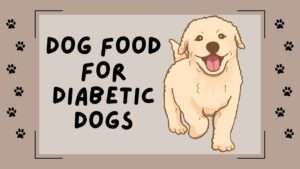
Dog Food For Diabetic Dogs Is your furry friend diagnosed with diabetes? Discover the best dog food options tailored to meet their unique nutritional needs.

Fiber Rich Dog FoodsA Complete Guide Dive into the world of fiber-rich dog foods with our complete guide. Explore the benefits of a high-fiber diet

Unhealthy Dog FoodsMust Read Guide Protect your furry friend from potential health hazards. Uncover the red flags in pet nutrition as we unveil the must-read

Healthy Dog FoodsA Comprehensive Guide Elevate your dog’s health and happiness with our detailed guide to nutritious canine diets. Uncover the secrets to selecting wholesome

High Protein Dog FoodsComplete List Fuel your dog’s vitality with our comprehensive list of high-protein dog foods. Discover the benefits of a protein-rich diet and

Dog Food AllergiesA Complete Guide Is your dog showing signs of food allergies? Unravel the mystery with our complete guide. Learn to identify, manage, and

Dog Training With CollarA Comprehensive Guide Explore the world of effective dog training with our comprehensive guide on using collars. Discover the right techniques and
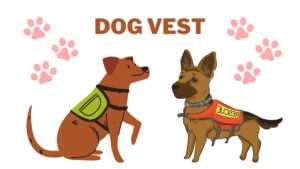
Dog VestA Must-Read Guide For Pet Lovers Elevate your pet’s style and comfort with our must-read guide on dog vests. From fashion to functionality, explore
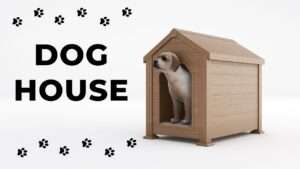
Dog HouseA Complete Guide For Pet Lovers Create the perfect sanctuary for your furry friend with our comprehensive guide to dog houses. From design considerations

Dog CrateA Comprehensive Guide For Pet Lovers Discover the importance of a well-chosen dog crate in your pet’s life. Our comprehensive guide provides insights into

Dog BedsEverything Pet Lovers Need To Know From size to style, our guide covers everything you need to know about providing the perfect bed for

Dog FoodA Complete Manual for Pet Enthusiasts Uncover the secrets of providing top-notch nutrition for your beloved pet. Our comprehensive manual covers everything you need

Why Only LMHPs Can Prescribe an ESA Letter? Join us on a journey to understand why only Licensed Mental Health Professionals (LMHPs) hold the key

Difference between Psychologists and Psychiatrists Dive into the intriguing realm of mental health as we unravel the nuances distinguishing psychologists and psychiatrists. Discover their unique

Can LMFTs Write an ESA Letter? Delve into the world of Emotional Support Animal (ESA) letters and discover the pivotal role Licensed Marriage and Family

